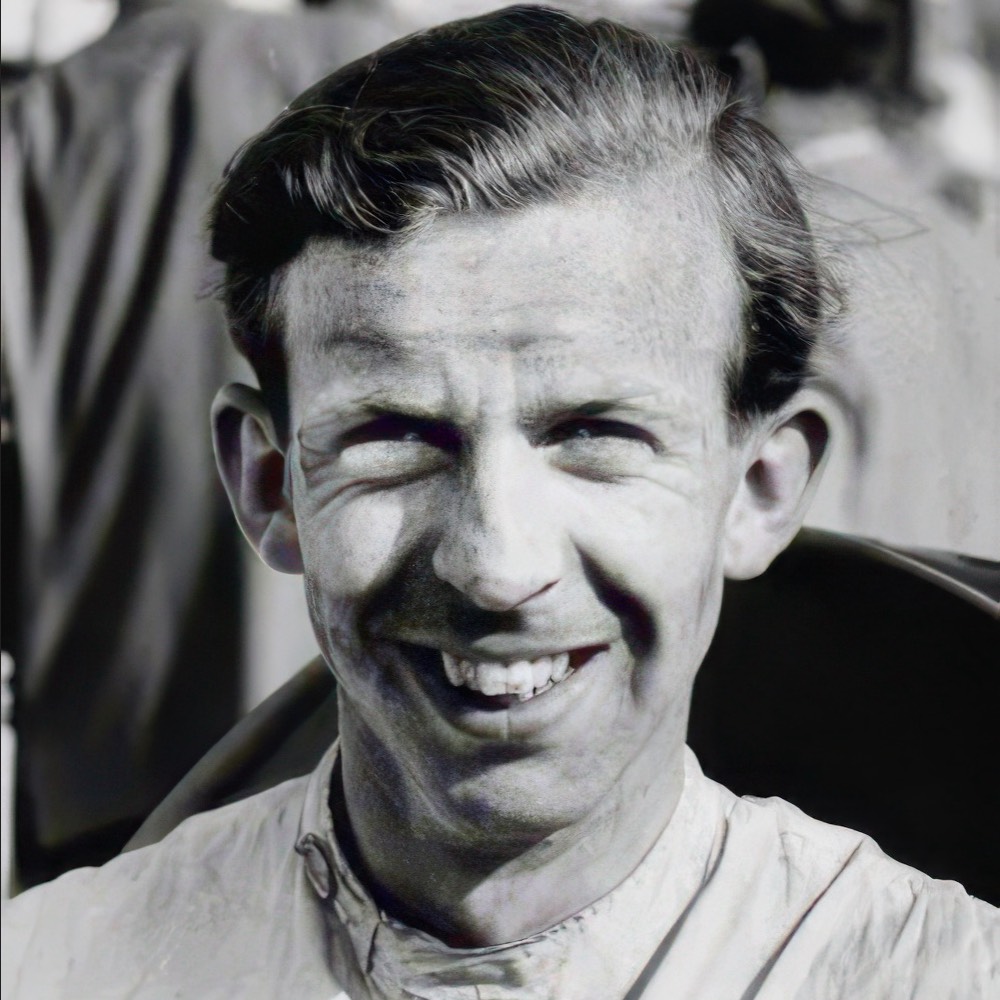
Tony Brooks
Career Statistics
Biography
Charles Anthony Standish 'Tony' Brooks (25 February 1932 - 3 May 2022) was a British racing driver who competed in Formula One from 1956 to 1961, winning six Grands Prix and finishing as championship runner-up in 1959, earning recognition as one of the finest drivers never to win the World Championship. Born and raised in Dukinfield, Greater Manchester, Brooks was the son of a dental surgeon, and this medical family background profoundly influenced his early life. Brooks studied dentistry at the University of Manchester, famously balancing his university studies with the beginnings of his racing career. He successfully qualified as a dentist in 1956—the same year he made his Formula One World Championship debut—earning him the nickname 'The Racing Dentist' that would follow him throughout his career.
This unique double achievement of becoming both a qualified dentist and Formula One driver demonstrated Brooks' exceptional intelligence and dedication. Brooks began racing in 1952, competing in sports cars at club events before progressing to Formula 2 by the mid-1950s. His breakthrough moment came at the non-championship 1955 Syracuse Grand Prix in Sicily, where Brooks drove a Connaught to victory—the first win by a British driver in a British car in Grand Prix motor racing since Henry Segrave's 1923 San Sebastián Grand Prix triumph. This historic victory, achieved in only Brooks' fourth single-seater race, announced him as a major talent and earned him Formula One opportunities.
Brooks made his World Championship debut at the 1956 Monaco Grand Prix driving for BRM, though the car's notorious unreliability prevented him from showing his full potential. For 1957, he joined Vanwall, Tony Vandervell's British team that was challenging Ferrari's dominance with innovative engineering. At the 1957 British Grand Prix at Aintree, Brooks shared the winning Vanwall with Stirling Moss, taking his maiden World Championship victory. The shared win with Moss came after Brooks had taken over Moss' car, a common practice in 1950s racing.
Throughout 1957-1958, Brooks established himself as one of Formula One's fastest drivers, winning the 1958 Belgian, German, and Italian Grands Prix. His three victories in 1958 should have made him a championship contender, but he finished third in the standings behind Mike Hawthorn and Stirling Moss. The controversial 1958 championship saw Hawthorn win with one victory versus Moss' four wins and Brooks' three, highlighting the points system's quirks that sometimes rewarded consistency over outright speed. For 1959, Brooks drove for both Ferrari and Vanwall as the British team wound down operations.
He won the French and German Grands Prix driving for Ferrari, remaining in championship contention throughout the season. The title fight came down to the final race at Sebring, with Brooks, Jack Brabham, and Moss all mathematically capable of winning. Brabham ultimately prevailed, leaving Brooks as championship runner-up—the closest he would come to motorsport's ultimate prize. His 1959 runner-up finish represents the high-water mark of Brooks' career, demonstrating he belonged among Formula One's elite but never quite capturing the championship his talent deserved.
Brooks continued in Formula One through 1961, though with diminishing success as his motivation waned. He retired at the end of 1961 at just 29 years old, having competed in 39 World Championship Grands Prix with six victories, ten podiums, and 75 championship points. His early retirement reflected growing concerns about Formula One's dangers and a desire to pursue life beyond racing. Many believed Brooks could have won multiple championships had he continued, but he prioritized his personal life over continued racing.
Beyond Formula One, Brooks achieved notable success in sports car racing, winning the 1957 1000km of Nürburgring and the 1958 RAC Tourist Trophy driving the Aston Martin DBR1, contributing to Aston Martin's sports car racing program during their golden period. Brooks lived a long life after retiring from racing, passing away on 3 May 2022 at age 90. As the last surviving Formula One race winner from the 1950s at the time of his death, Brooks represented a direct link to Formula One's early era when drivers were gentlemen amateurs who raced as much for enjoyment as professional achievement. Both Stirling Moss and Jack Brabham spoke highly of Brooks' abilities, with many contemporary observers believing he was every bit as quick as Moss when fully committed.
Tony Brooks is remembered as one of the finest drivers never to win the World Championship—a supremely talented, intelligent driver who won six Grands Prix, finished as championship runner-up, and retired early on his own terms rather than continuing past his prime. His nickname 'The Racing Dentist' captured the unique nature of his career, balancing professional medical qualifications with Formula One success in an era when such combinations were possible.